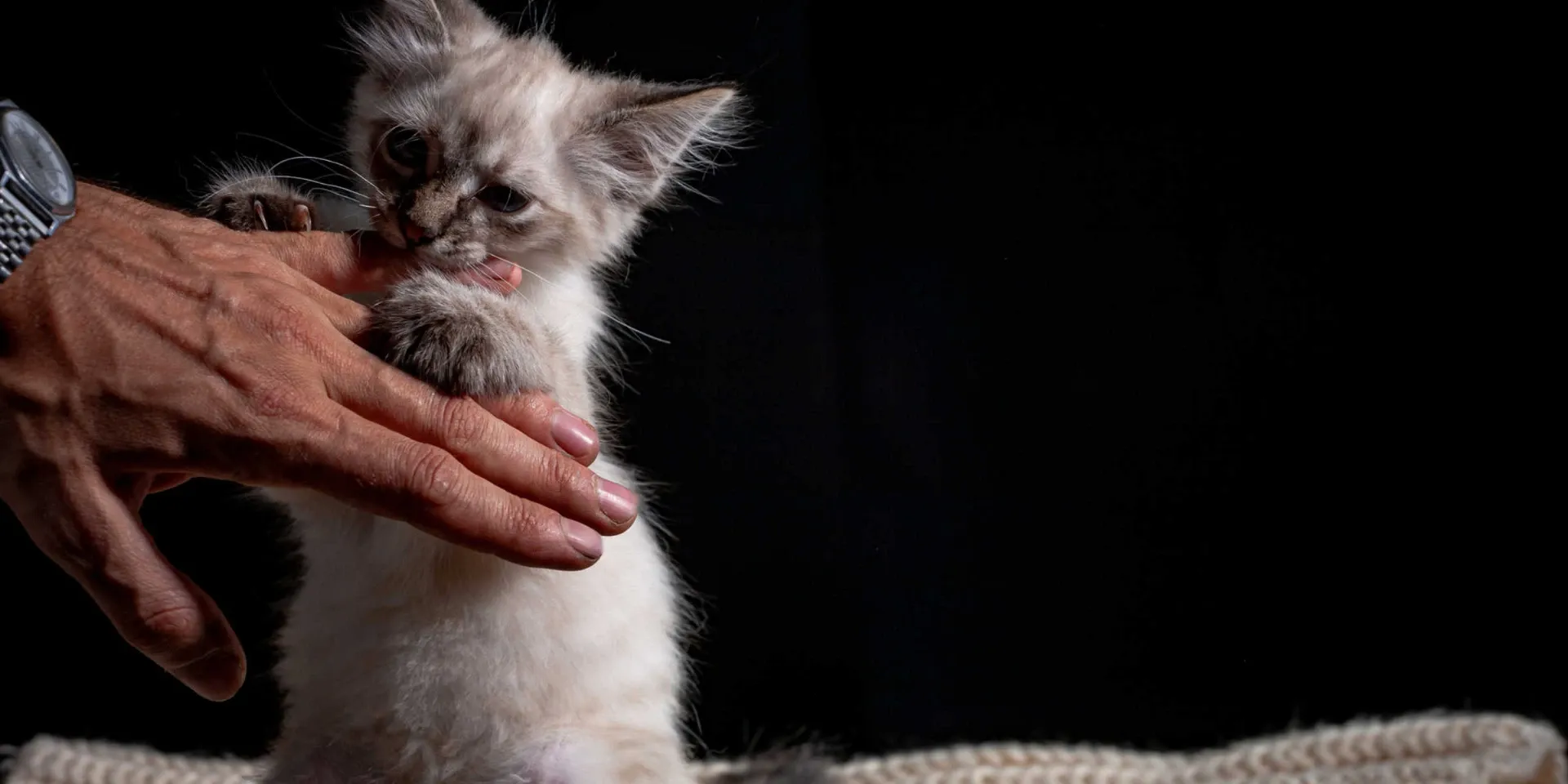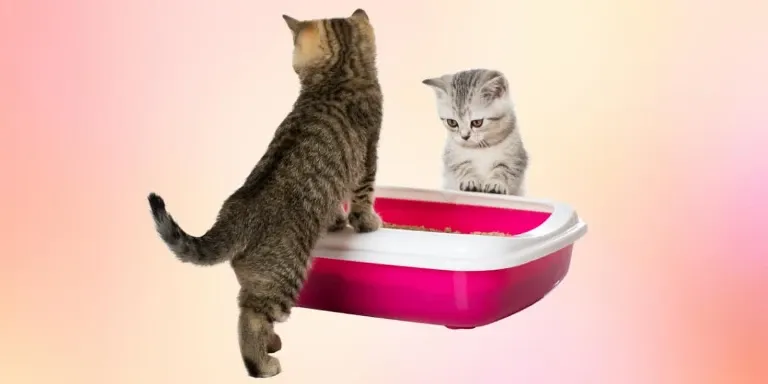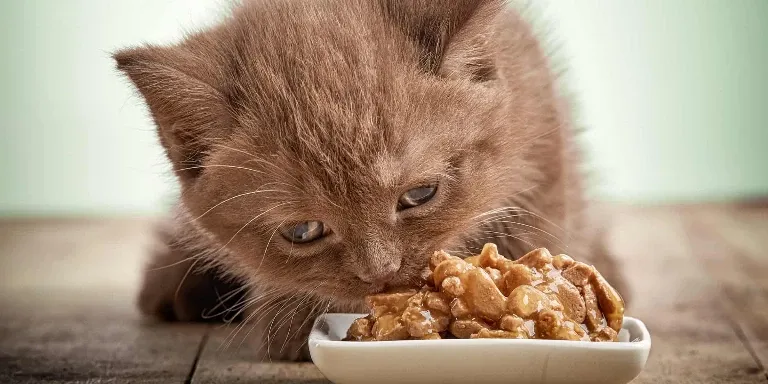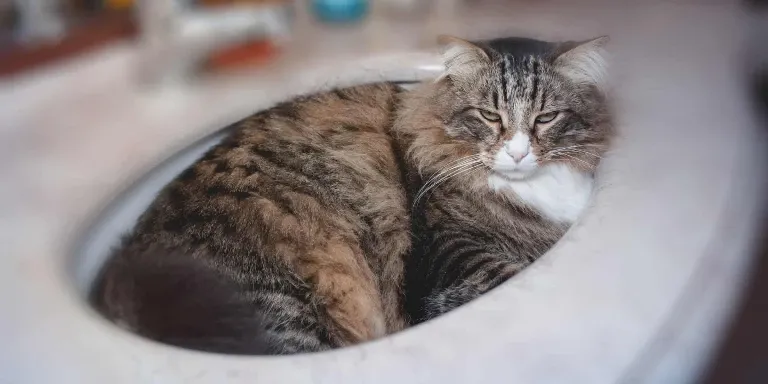The Best Fluffy Pancakes recipe you will fall in love with. Full of tips and tricks to help you make the best pancakes.

Are you considering separating your kittens? Do you worry about how they will handle the transition? Kittens, like humans, are social animals and crave companionship. Separating them can be a stressful experience for both you and your furry friends.
Kittens may experience some sadness or stress when separated from their littermates or mother, especially if they are very young. However, with proper care and attention from their new owner, they can adjust and thrive in their new home. Ensuring they have plenty of playtime, socialization, and bonding with their new human family can help ease the transition.
In this article, we will explore the topic of kitten separation and its effects on their well-being. We will discuss the importance of socialization for kittens, what kitten separation distress is, and practical tips for easing the transition.
As a responsible kitten owner, it is essential to understand the impact of separation on their emotional and physical health. Early socialization plays a crucial role in the development of kittens and their ability to form secure relationships. Separating kittens can lead to anxiety, depression, and even aggression.
It is vital to consider the reasons for separation and the best approach to ensure a positive outcome for both you and your kittens. In the following sections, we will delve deeper into this topic and provide you with the information you need to make an informed decision.
The Importance of Socialization for Kittens
You’ll want to make sure your kittens receive proper socialization as it plays a crucial role in their emotional well-being and development. Kittens that are not properly socialized may exhibit fearful or aggressive behavior, and have difficulty adjusting to new environments or people.
Socialization techniques involve exposing kittens to a variety of people, animals, and experiences in a safe and controlled environment.
Kitten socialization is important because it helps them become more confident and well-adjusted adults. Socialization allows kittens to learn how to interact with other cats and humans, and to develop the necessary skills to navigate their environment. Kittens that are not properly socialized may develop behavioral problems later in life, which can be difficult to correct.
By providing your kittens with socialization opportunities, you are helping them to develop the necessary social skills to cope with separation and other stressful situations. Understanding kitten separation distress is important in ensuring that your kittens are able to transition to new environments without experiencing undue stress.
Understanding Kitten Separation Distress
Understanding kitten separation distress can be challenging, but it’s important to remember that it’s a common issue that many kittens experience. When kittens are separated from their mothers and littermates, they may experience anxiety and behavior changes.
Here are a few things to keep in mind:
- Kittens are social creatures and thrive on companionship. Being alone for long periods of time can cause them to feel lonely and anxious.
- Separation anxiety can manifest in a variety of ways, such as excessive crying, destructive behavior, and loss of appetite.
- It’s important to address these behavior changes early on to prevent them from becoming long-term issues.
To ease the transition for your kitten, there are several things you can do. One of the most important is to establish a routine. Consistent feeding and play times can help your kitten feel secure and comfortable in their new environment.
Another important step is to provide plenty of toys and activities to keep your kitten occupied when you’re not around. Finally, it’s a good idea to gradually introduce your kitten to new people and environments so they can become more confident and adaptable.
By understanding kitten separation distress and taking steps to ease the transition, you can help your kitten adjust to their new home and avoid long-term behavior issues.
Tips for Easing the Transition
As your new furry friend adjusts to their new surroundings, supporting their emotions during the separation process is crucial. Gradual separation can help ease the transition, allowing them to gradually adjust to being alone for short periods. This can be done by starting with brief periods of separation, gradually increasing the duration over time.
During this process, leaving them with comforting items such as a favorite toy or blanket can also help ease their anxiety. In addition to gradual separation, establishing a consistent routine can also help ease the transition for your new kitten. This routine should include designated feeding times, playtime, and rest time.
A consistent routine helps create a sense of stability and predictability for your kitten, which can help them feel more secure in their new environment. Providing plenty of toys and interactive playtime can also help keep your kitten entertained during their transition period. Not only does this help keep them physically active, but it also provides mental stimulation, which can help alleviate stress and anxiety.
By taking these steps to support your kitten’s emotional needs during the separation process, you can help ensure a smoother transition into their new home. Now, let’s talk about introducing a new kitten to your home.
Introducing a New Kitten to Your Home
When introducing a new kitten to your home, it’s important to prepare your space to ensure their safety and comfort. This includes securing any potential hazards and providing appropriate toys and scratching posts.
You should also plan to introduce the kitten slowly to other pets in the household, monitoring their interactions and providing positive reinforcement for good behavior.
Preparing Your Home
To create a comfortable space for your new kittens, it’s important to make some adjustments around the house. Creating boundaries is crucial in ensuring their safety and well-being.
Set up a designated area for your kittens that is free from any hazardous materials or objects. This area should be spacious enough for them to move around and play. Consider installing a cat tree or scratching post to provide them with a place to climb and scratch. Providing them with toys and a comfortable bed will help them feel at home and ease any stress from the transition.
In addition to creating boundaries, providing comfort is also important. Kittens are sensitive to changes in temperature, so ensure that their designated area is warm enough for them. You can also provide them with a cozy blanket or heating pad. Keep their litter box accessible and clean, and ensure that they have access to fresh water and food at all times.
By creating a comfortable and safe environment for your new kittens, you are setting them up for a happy and healthy life in your home. And now, let’s move on to introducing the kitten to your home.
Introducing the Kitten
Introducing your new kitten to your home can be an exciting and heartwarming experience, but it’s important to understand kitten behavior and acclimating techniques to ensure a smooth transition for your furry friend. Here are some tips to help your kitten feel comfortable in their new surroundings:
- Introduce the kitten to one room at a time, starting with a safe and quiet space.
- Provide a cozy bed, litter box, food, and water in the designated room.
- Spend time playing with and socializing your kitten in their safe space.
Gradually introduce your kitten to other rooms and areas of your home. Monitor their behavior and adjust their environment as needed to ensure their comfort.
By following these acclimating techniques, you can help your kitten adjust to their new home and reduce the likelihood of stress-related behaviors.
In the next section, we’ll discuss managing interactions with other pets to ensure a harmonious household.
Managing Interactions with Other Pets
Managing interactions with other pets can be a challenging but necessary task when bringing a new kitten into the household. It’s important to introduce the kitten to other pets in a controlled and safe manner, especially when it comes to dogs and cats.
When introducing dogs to the kitten, it’s best to keep them on a leash and closely supervise their interactions. If the dog becomes too excited or aggressive, it’s important to separate them immediately.
On the other hand, when introducing cats to the kitten, it’s important to provide a separate space for each animal and gradually allow them to interact under supervision. It’s important to remember that each animal has its own personality and temperament, and some may take longer to adjust than others.
Monitor their interactions closely and be patient with the process. If the introduction process doesn’t go smoothly, it may be necessary to separate the animals for a while until they become more comfortable with each other.
When it comes to separating kittens due to health reasons, it’s important to consult with a veterinarian to ensure the best course of action. Separation may be necessary if the kitten is sick or has a contagious disease that could spread to other animals in the household. In such cases, it’s important to keep the kitten in a separate room and avoid contact with other animals until they have fully recovered.
Separating Kittens Due to Health Reasons
When you separate kittens due to health reasons, it can be difficult for both you and the kittens. Kittens rely on each other for comfort and companionship, and separating them can lead to feelings of loneliness and sadness. However, in some cases, separating kittens may be necessary to prevent the spread of disease or to provide specialized medical care.
Kitten bonding is an important part of their development, and it’s essential to provide opportunities for socialization and interaction with other cats. However, if one kitten is sick or has a contagious condition, it’s crucial to separate them from the rest of the litter to prevent the spread of the disease. Additionally, if a kitten requires specialized medical care or treatment, it may be necessary to separate them to ensure they receive the necessary attention.
When separating kittens due to health reasons, it’s important to provide them with a comfortable and safe environment. Make sure that they have access to food, water, and a warm place to rest. Additionally, provide them with plenty of toys and activities to keep them occupied and stimulated.
While it may be challenging to separate kittens, it’s essential to prioritize their health and well-being.
Separating kittens for adoption is a critical step in finding them loving and permanent homes. However, it’s important to ensure that they’re healthy and ready for adoption before doing so. When you’re ready to separate kittens for adoption, make sure that they’ve received appropriate medical care, vaccinations, and socialization.
This will help to ensure that they’re healthy and well-adjusted, making them more attractive to potential adopters.
Separating Kittens for Adoption
If you’re looking to find loving homes for your furry friends, separating them for adoption is a crucial step in ensuring they receive the care and attention they deserve. While it’s natural to worry about the emotional well-being of your kittens, it’s important to remember that separating them for adoption is ultimately for their benefit.
Kittens thrive when they receive individual attention and care, and separating them allows them to develop strong bonds with their new families. The adoption process can be a stressful time for kittens, but there are steps you can take to ease their transition.
Before sending them off to their new homes, make sure they are up-to-date on their vaccinations and have been spayed or neutered. Additionally, providing post-adoption support to the new owners can help ensure that your kittens receive the best possible care in their new homes.
In the next section, we will explore the role of early socialization in kitten development and how it can impact their long-term well-being. By understanding the importance of socialization, you can help ensure that your kittens grow up to be happy, healthy, and well-adjusted cats.
The Role of Early Socialization in Kitten Development
If you’re concerned about separating kittens for adoption, it’s important to consider the role of early socialization in kitten development. Kittens who are separated too early from their littermates and mother may struggle with socialization and behavioral issues later in life. This is why it’s important to use early socialization techniques to help kittens develop healthy social skills.
Early socialization techniques involve exposing kittens to a variety of people, animals, and environments to help them learn how to interact with the world around them. This can include things like handling, playtime, and introducing them to new sights, sounds, and smells. By doing this, kittens learn how to be comfortable in different situations and with different people, which can help them develop into well-adjusted adult cats.
The long term effects of socialization on kitten behavior can be significant. Kittens who receive proper socialization are more likely to be confident, friendly, and well-adjusted adult cats. On the other hand, kittens who don’t receive adequate socialization may struggle with fear, anxiety, and aggression. By investing in early socialization for your kittens, you’re setting them up for a lifetime of success and happiness.
As a responsible kitten owner, it’s important to consider the long term effects of socialization on your kitten’s behavior. By using early socialization techniques, you can help your kitten develop into a happy and well-adjusted adult cat.
In the next section, we’ll discuss resources for kitten owners to help you provide the best possible care for your new furry friend.
Resources for Kitten Owners
Take advantage of resources available to you as a kitten owner to ensure that you’re providing the best care for your new feline friend. One of the most important aspects of kitten care is nutrition. Kittens have specific dietary needs that are different from adult cats, and it’s important to provide them with the necessary nutrients for proper growth and development. Look for high-quality kitten food that’s specifically formulated for their needs, and avoid feeding them human food or dog food, which can be harmful to their health.
Another important aspect of kitten care is grooming. Regular grooming not only keeps your kitten looking and smelling good, but it also promotes healthy skin and coat. Start by brushing your kitten daily to remove any loose hair and prevent hairballs. You can also use a damp cloth to wipe their face and ears, and trim their nails every few weeks. If you’re unsure about how to groom your kitten, consult with your veterinarian or a professional groomer for advice and guidance.
In addition to proper nutrition and grooming, it’s important to provide your kitten with plenty of love and attention. Spend time playing with them, providing them with toys and scratching posts, and creating a safe and comfortable environment for them to thrive in.
By taking advantage of available resources and providing your kitten with the best care possible, you can ensure that they grow up healthy, happy, and well-adjusted.
Is It Cruel to Separate Kittens from Their Mother?
Separating newborn kittens from their mother can lead to a heartbreaking situation. The newborn kittens hungry cry for their mother’s warmth and nourishment. It’s essential to consider their well-being before making any decisions. Mimicking the mother’s care can help ease the transition for the kittens.
Conclusion
Congratulations on taking the first step towards understanding your kitten’s behavior! As you’ve learned, socialization plays a key role in the development of your furry friend.
Separation can be a challenging time for your kitten, but with patience and understanding, you can help ease their transition. Think of your kitten like a young child. Just like a child, your kitten needs time to adjust to new surroundings and people.
Provide them with a safe and comfortable environment, and be sure to introduce them to new experiences gradually. With your love and care, your kitten will flourish into a happy and healthy adult cat.
Remember, if you have any concerns about your kitten’s behavior, consult with a veterinarian or animal behaviorist. With the right support and guidance, you and your kitten can enjoy a long and fulfilling life together.








